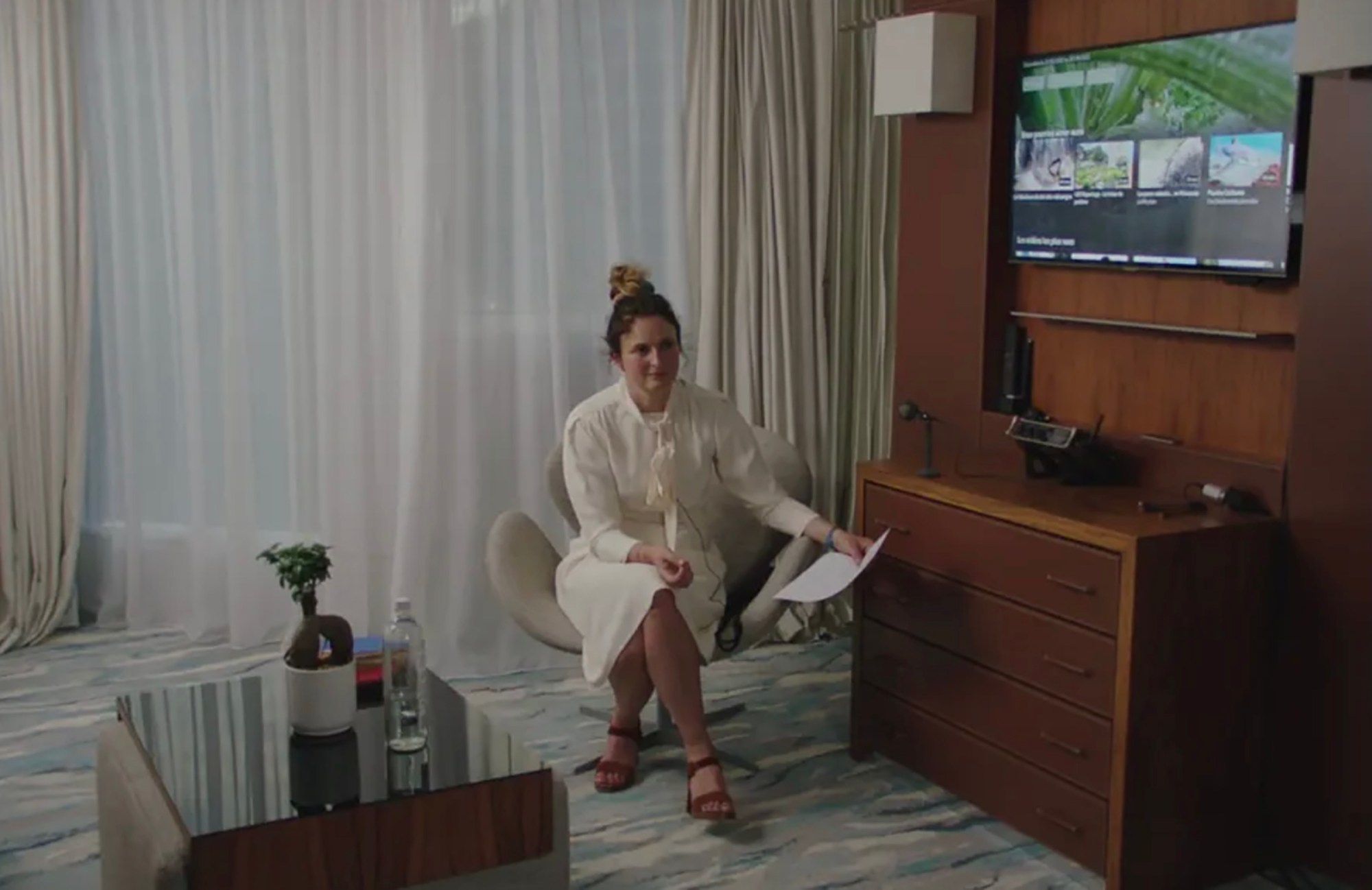
- Festivals
Cannes: Docs – ‘Room 999’ Finds Directors Pondering Future of Cinema
In addition to its curated and prestigious world premieres, the Cannes Film Festival has a notoriously active marketplace, with producers and filmmakers from all over the world descending each year upon the Côte d’Azur to pitch their would-be projects and attempting to secure financing.
In 1982, however, director Wim Wenders had a different aim. He arrived at Cannes with one thing on his mind: the future of cinema. He channeled his curiosity into Room 666, a short-form documentary in which he asked filmmakers their thoughts on where the art form in which they worked was headed.
Alongside established luminaries like Jean-Luc Godard and Michelangelo Antonioni, Wenders canvassed a broad spectrum of directors, including those (like Steven Spielberg and Werner Herzog) at earlier points in the arc of their respective careers. Each participant was given a series of simple, direct questions — the principal query being, “Is cinema a language about to get lost, an art about to die?” Their answers were confined to a single 16mm reel (about 12 minutes), and then edited down to under one hour for the documentary’s final form.
Directed by Lubna Playoust, Room 999, which made its world premiere in the 2023 Cannes Classics section, is a spiritual sequel to this endeavor. Mimicking the same static set-up at the Hotel Martinez as its predecessor, the project was shot at last year’s Cannes Film Festival. Its list of interviewees is a long and estimable one, including David Cronenberg, Claire Denis, Lynne Ramsay, Paolo Sorrentino, Olivier Assayas, Baz Luhrmann, Ruben Östlund, Wenders himself, and many more.
Perhaps unsurprisingly, given the diverse backgrounds and perspectives of its 30 participants, no single consensus emerges. It is this fact which most informs the commingled at-odds energy and deeply ruminative nature of Room 999 — robustly reflecting the swirling moral grays often found in the most intellectually rigorous and challenging works made for the big screen.
Characterizing himself as old and grumpy, James Gray expresses a deep pessimism about what the future holds for communal exhibition, and articulates a very specific obituary for film, in which it will be replaced by a mutated art form incorporating the interactivity of video games. Joachim Trier and others wonder and worry about the economics of the business, and whether a growing class divide will hasten its cultural irrelevance and demise. Additionally, other subjects parse and unpack the potential ramifications of an elevated film vocabulary being eroded by algorithmic entertainment, in which “content” is produced only as a most basic emotional stimulant or salve.
Other directors, however, perhaps most notably Luhrmann, are quite positive about the future of film. Albert Serra, in a playfully digressive monologue, ends by begging financiers to leave creative types to “our inefficient fantasies.” Arnaud Desplechin takes aim at the question itself, opining that, “Cinema is always dying — that is the very nature of its life.”
Even though her camera remains still throughout, Playoust and cinematographer Marine Atlan cannily frame, alongside their subjects, a hotel room television screen which showcases a rotation of video-on-demand entertainment. While there are understandably plenty of potshots at the expense of streaming services throughout the documentary, this very juxtaposition also leads Return to Seoul writer-director Davy Chou to wax rhapsodic about the evolution of the cinematic form itself, citing David Lynch’s Twin Peaks, The Return (a work made for television) as the boldest, most risk-taking piece of filmed entertainment of the last several years.
In closing, in a somewhat long and winding answer, Alice Rohrwacher also mused in a very philosophical way about the nature of the question at the center of Room 999, noting that the fact that cinema could even die makes it more human, and thus more precious.
Only time will tell which elements of Playoust’s film are most prophetic, and which are most naive. But for cineastes, Room 999 connects as a unique type of physical check-up — an undeniably interesting and at times affecting look at the singular art form for which we all share a passion.